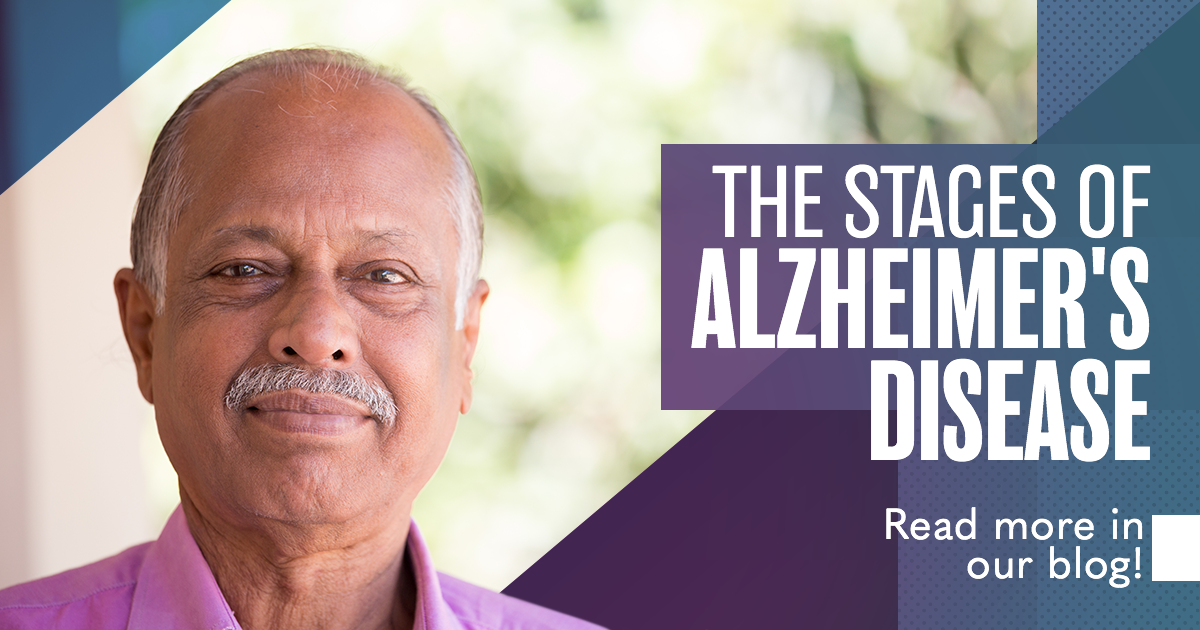Alzheimer’s disease is the most common form of dementia. Dementia is a universal label that defines the symptoms of mental decline associated with Alzheimer’s and other brain conditions. Typically, there are three stages that Alzheimer’s disease slowly progresses through. These are early (mild), middle (moderate), and late (severe). Over 50 million people worldwide have Alzheimer’s disease or other forms of dementia. Knowing the signs and stages are some ways that help with early detection.
Stages of Alzheimer’s
As we go through the different stages of mild through severe, keep in mind this is a general guide of how abilities change once symptoms appear. Alzheimer’s affects each person’s brain differently, along with how quickly or slowly, they progress through each stage.
- Mild Stage– In this stage, symptoms may not be apparent and may go unnoticed by the person affected. However, friends and family may notice difficulty in the following areas:
-
- Performing tasks at work or in social settings.
- Remembering the names of new people.
- Coming up with the right word or name.
- Moderate Stage– The symptoms are more pronounced in this stage. This middle stage can last for many years as the person becomes unable to express thoughts and do their daily routine without help. The difficulties of this stage include:
-
- Recalling personal information like address or phone number.
- Changes in mood, and acting withdrawn in mentally and socially taxing situations.
- Controlling bladder and bowels.
- May wander and get lost.
- Severe Stage– Individuals in this stage are unable to respond to their environment. They also are unable to carry on conversations and lose the ability to control their movements. Some of the other challenges in this stage are:
-
- Requiring round the clock assistance and personal care.
- Susceptibility to infections like pneumonia.
- Being Unaware of surroundings and recent experiences.
When to Seek Help
Memory loss is often associated with getting older and changes to our brain. Although this is true, many remain unaware of when it’s time to get help. If your memory issues concern you or are disrupting your daily life, it is time to talk with your doctor. Knowing the warning signs and being proactive can help determine if early intervention is needed.
Researching Future Treatment Options
Alzheimer’s doesn’t have a cure, but if caught early enough, you can have a better response to the treatment options available. There is still so much we don’t know about Alzheimer’s disease, but clinical research studies are changing how we diagnose, treat, and eventually cure this deadly disease.

By participating in upcoming clinical research studies, you may gain access to new options being discovered for Alzheimer’s, as well. To learn more about future research studies for Alzheimer’s at JEM, call (561) 968-2933, or visit us here.
Reference:

